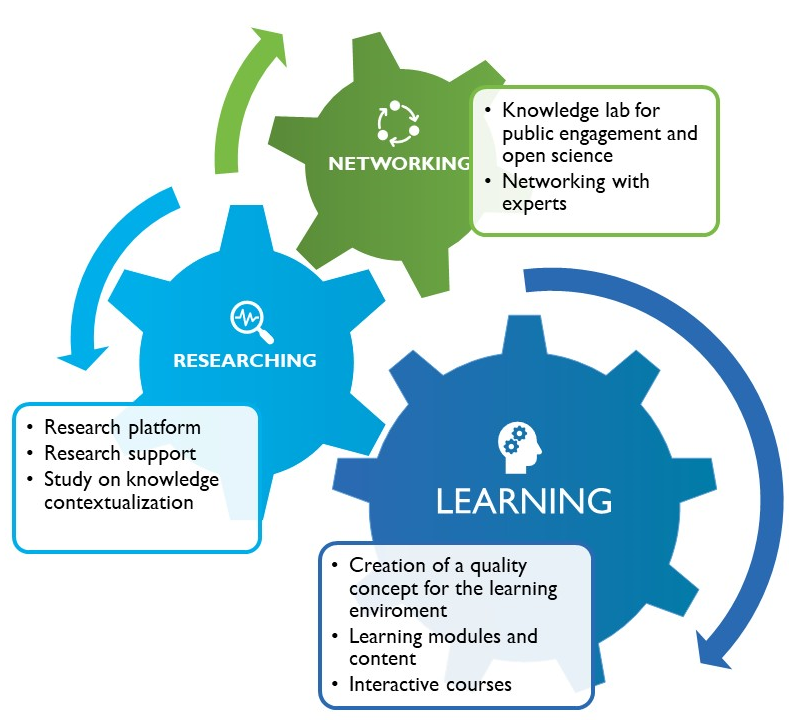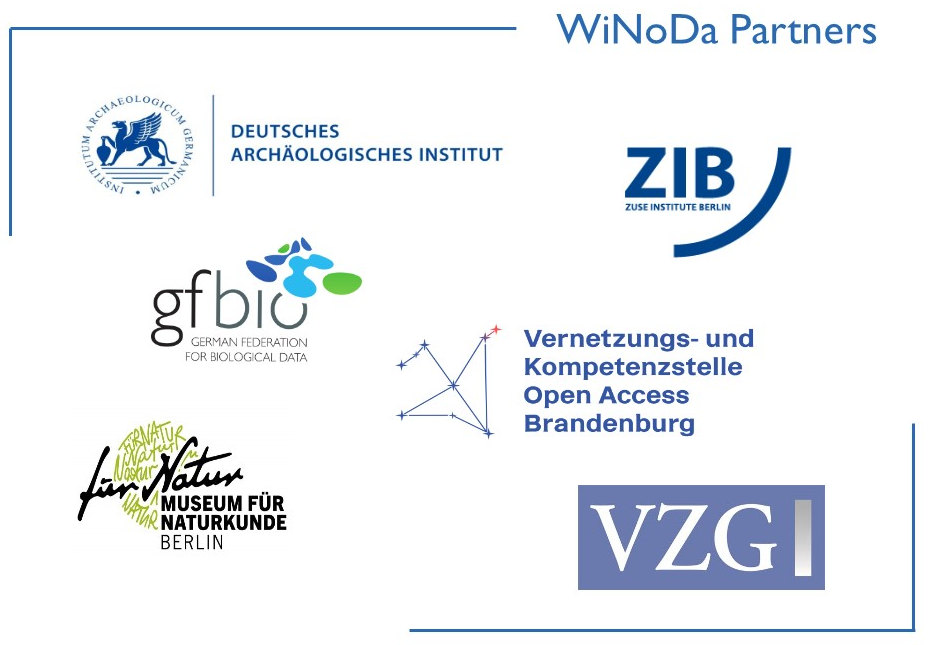WiNoDa
Knowledge lab for natural science collections and object-related data
Unlocking insights from over 1 billion natural history objects worldwide from museums and collections helps in understanding the past and predicting the future. However, the growing size and complexity of object data demand specialized data skills, and we observe insufficient institutional and individual capacities to move innovative research forward. Within the WiNoDa project, six museums and research-supporting organizations collaborate to provide a research and training environment for professionals and students interested in using natural history collections. It is funded as part of the data competence centre initiative of the Federal Ministry for Education and Research in Germany (BMBF).
Project Goals
The project will implement an interdisciplinary Knowledge lab as a place for learning, research and networking. It aims to foster innovation in learning formats, establish a robust platform for handling collection data, and facilitate interactive events and collaborative opportunities among researchers, data users from the creative industry, and other societal stakeholders. Following a three-year implementation phase, the Knowledge Lab is slated for integration into the Centre for Collections Future in Berlin.
To create the learning environment, existing programs for professionals are systematically evaluated and integrated into the learning units of the knowledge lab. Moreover, they are complemented by new learning units tailored to specialist and methodological needs in the community. For the development of a research environment, research support services (helpdesk, consultation hours) and infrastructures (HPC computing power, research environment, pipelines for data publications) will be provided. To foster collaboration, professionals have the opportunity to acquire an Open Science skill set and build networks across disciplines and sectors. Close cooperation with the German national research data infrastructure NFDI is being sought for technically and methodically adapted learning units as well as networking measures with the NFDI Training and Education Section. Through networking opportunities, the project aims to connect natural sciences and humanities and encourage closer collaboration between them.

Our Role
GFBio e.V. supports the WiNoDa project by bringing in a tried-and-tested service portfolio consisting of Data Management Planning Tool, Data Submission Tool, as well as expertise in data visualization and data standards for handling biological data.
GFBio e.V. will provide tailored learning content to enhance data competencies and will pilot a Winter School and Hackathon for the Knowledge lab. We provide robust research support through a user-centric platform and actively foster networking with other data competence centres and international partners in the field of natural and human history.
As managing partner of the NFDI4Biodiversity consortium within the German national research data infrastructure NFDI, GFBio will ensure that good working relations are established between the initiatives and synergies can evolve.
Partners and their Expertise:

- Leibniz Institut für Evolutions- und Biodiversitätsforschung (MfN): Expertise in knowledge infrastructure, digitization pipelines and long-term archiving of data .
- Deutsches Archäologisches Institut (DAI): Expertise in the management of scientific data as well as the development of research software and operation of a research data infrastructure.
- German Federation for Biological Data (GFBio): Expertise in data management, support services for researchers, training and visualization tools; offers a broad service portfolio.
- Verbundzentrale des GBV (VZG): in the area of information infrastructure, responsible in the WiNoDa project for central data storage in standardized exchange format.
- Zuse-Institut Berlin (ZIB): Expertise in data science, data and research infrastructure; supports the project with resources in data preservation/processing, computing power and expertise in data visualization.
- Vernetzungs- und Kompetenzstelle Open Access Brandeburg (VuK): Expertise in Public Engagement and Open Science.
News and Updates
For the WiNoDa knowledge lab, we are continuously working on support options, content and further training opportunities. Subscribe to the WiNoDa newsletter and get all the important updates!
Funding

